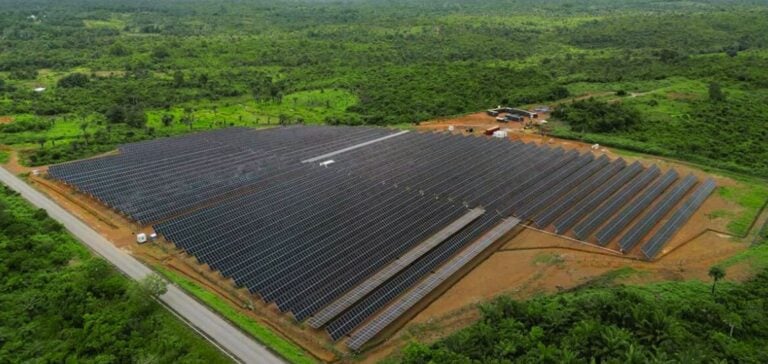Infinity Power and the Government of Sierra Leone, represented by the Ministry of Energy, have officially signed a Memorandum of Understanding (MoU) to develop 1GW of renewable energy capacity in Sierra Leone by 2033.
This strategic partnership provides for a phased approach to the expansion of the country’s power generation and distribution infrastructure, including solar photovoltaic (PV), hydroelectric, battery storage and wind power solutions.
This is a welcome development in a country that has recently experienced an energy crisis, with the Minister of Energy even tendering his resignation in light of the country’s situation.
This is why the government is keen to increase the number of partnerships, like the gas-fired power plant built by Nant Energy.
Objectives and Benefits
The signing of this agreement at State House in Freetown marks a crucial step in Sierra Leone’s commitment to sustainable development and economic growth.
In addition to improving access to energy, the project is expected to create numerous jobs and support Sierra Leone’s environmental objectives.
Infinity Power will work closely with the Ministry of Energy to carry out feasibility studies, obtain the necessary permits and finalize power purchase agreements with the Electricity Distribution and Supply Authority (EDSA).
Project stages
The first stages of the project will include the development of 200MW of renewable energy generation capacity.
This will involve the expansion of existing hydroelectric dams and the installation of floating and ground-mounted solar photovoltaic systems.
The project is designed to meet the country’s growing energy needs while respecting environmental standards.
Support and Implications
Sierra Leone’s Ministry of Energy has reaffirmed its support for the initiative, highlighting the project’s potential to transform the country’s energy landscape. Prof. Dr. Eldred Tunde Taylor, Deputy Minister of Energy, explained that the aim is to integrate more renewable energy sources and improve sector reforms to attract investment.
Background and Vision
At Sierra Leone’s first National Climate and Energy Transition Dialogue in October 2023, President Bio highlighted his government’s plan to achieve 1GW of generating capacity over the next 10-15 years.
This initiative would enable Sierra Leone to become a major player in regional energy trade.
Outlook for the future
This partnership with Infinity Power is a significant step towards realizing this vision.
Ongoing reforms in the energy sector and international collaborations are aimed at strengthening energy security and supporting Sierra Leone’s sustainable economic development.






















